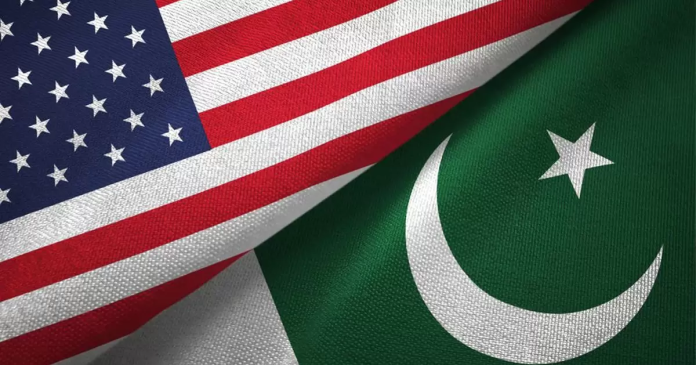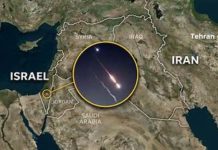BY Abdullah Hamid Gul
ISLAMABAD, SEP 14 (DNA): Pakistan and the United States have shared a relationship that, while not without its complexities, has consistently demonstrated resilience, adaptability, and mutual benefit. This partnership, forged over decades of strategic alignment, reflects the dynamic nature of global geopolitics and the evolving interests of both nations. From the early days of Pakistan’s independence, when the young nation sought support from the United States, to the present day, where both countries collaborate on a broad range of issues, the relationship has matured and deepened, becoming more multifaceted and strategically significant.
Historically, the alliance between Pakistan and the United States was shaped by shared strategic interests during the Cold War. Pakistan, recognizing the importance of aligning with the West, became a crucial partner for the United States in South Asia. This period saw significant collaboration in military, economic, and diplomatic arenas, laying a strong foundation for the relationship. The partnership was characterized by a shared vision of regional stability, peace, and development, which would endure through the changing global dynamics of the late 20th and early 21st centuries. As we move further into the 21st century, the trajectory of Pak-US relations appears more promising than ever. Both nations are poised to build on their historical ties, leveraging their partnership to address contemporary global challenges, from counterterrorism and regional stability to economic growth and climate change. This analysis delves into the promising trajectory of Pak-US relations, highlighting the positive developments, shared interests, and strategic opportunities that are shaping the future of this enduring alliance.
Security Collaboration
Security cooperation has always been a cornerstone of Pak-US relations, and this partnership is stronger today than ever. The two countries have a long history of working together to combat terrorism and promote regional stability. The US has provided significant military aid to Pakistan, helping modernize its armed forces. For instance, since 2002, Pakistan has received over $33 billion in various forms of aid from the US, including military assistance. Pakistan’s strategic location and its role as a frontline state in the fight against terrorism have made it an indispensable partner for the United States. In recent years, Pakistan has made significant strides in its counterterrorism efforts, with the support of the United States. A notable example is Pakistan’s success in Operation Zarb-e-Azb and Operation Radd-ul-Fasaad, which were instrumental in dismantling terrorist networks within its borders. The United States, recognizing Pakistan’s pivotal role in regional stability, has continued to provide military aid, intelligence support, and training to Pakistani forces. These collaborative efforts have contributed to a safer and more secure South Asia, a goal that both nations continue to pursue with determination.
The positive trajectory of this collaboration was further solidified in September 2021 when the US reaffirmed its commitment to Pakistan’s security during high-level defense talks. The dialogues focused on enhancing counterterrorism capabilities and expanding intelligence-sharing mechanisms. This partnership extends beyond counterterrorism to encompass broader security issues such as nuclear non-proliferation, cyber security, and maritime security. By working together, Pakistan and the US are making significant progress towards a more peaceful and stable world.
Nuclear security is another area where Pak-US relations have shown remarkable cooperation. The United States has long worked with Pakistan to ensure the security of its nuclear arsenal. Initiatives such as the Strategic Stability Dialogue (SSD) have provided a platform for both nations to discuss nuclear safety, security, and non-proliferation issues. The SSD, revived in 2022, has been instrumental in addressing mutual concerns and fostering trust between the two countries on sensitive security matters.
Pakistan’s commitment to global non-proliferation norms, despite not being a signatory to the Non-Proliferation Treaty (NPT), has been acknowledged by the US. The ongoing collaboration in nuclear safety and security highlights the mutual understanding that a stable and secure nuclear environment is in the best interest of both nations and the broader international community.
Maritime security has become increasingly important in the context of global security cooperation between Pakistan and the United States. The Arabian Sea, a critical maritime route, requires constant vigilance against threats such as piracy, smuggling, and terrorism. Pakistan’s navy has played a vital role in ensuring the security of these waters, often working alongside the US Navy in joint patrols and exercises. The annual “Aman” naval exercises, hosted by Pakistan and participated in by the United States, are a testament to the strong maritime cooperation between the two nations.
Cybersecurity is another emerging area of collaboration. As cyber threats become more sophisticated and widespread, both nations recognize the need for enhanced cooperation in this domain. Joint efforts to bolster cybersecurity infrastructure, share intelligence on cyber threats, and develop capabilities to counter cyber-attacks are paving the way for a more secure digital environment. The US-Pakistan Cyber Dialogue, initiated in 2023, has been a crucial platform for addressing shared concerns and exploring new avenues for cooperation in cybersecurity.
Economic Partnership
The deepening economic partnership between Pakistan and the United States is one of the most promising aspects of their bilateral relations. The United States has long been one of Pakistan’s largest trading partners, with bilateral trade surpassing $6 billion annually. American companies have made substantial investments in Pakistan, contributing to the growth of key sectors such as technology, agriculture, and energy. The Biden administration, recognizing Pakistan’s potential as a gateway to South Asia and beyond, has shown a keen interest in expanding economic ties. In 2023, the two countries launched the U.S.-Pakistan Green Alliance, focusing on sustainable development and climate resilience, which is expected to further enhance trade and investment opportunities.
The Green Alliance is part of a broader initiative to strengthen economic relations, with the US offering technical assistance and capacity-building programs to help Pakistan achieve its economic goals. Moreover, Pakistan’s burgeoning technology sector presents exciting opportunities for collaboration. With a young, tech-savvy population and a growing startup ecosystem, Pakistan is well-positioned to become a hub for innovation in the region. The US, with its expertise in technology and innovation, is a natural partner in this endeavor. Joint ventures, investment in tech startups, and knowledge exchange programs are paving the way for a new era of economic cooperation that promises to bring prosperity to both nations.
Humanitarian Cooperation
Humanitarian assistance and development cooperation have been central to the Pak-US relationship. The United States has consistently provided support to Pakistan in times of need, from disaster relief to public health initiatives. This partnership has had a profound impact on the lives of millions of Pakistanis, contributing to improved healthcare, education, and infrastructure. The US Agency for International Development (USAID) has been instrumental in implementing development projects across Pakistan, focusing on areas such as education, women’s empowerment, and sustainable development. These initiatives have helped build a brighter future for Pakistan, fostering economic growth, and improving the quality of life for its citizens. For example, in May 2023, USAID announced a $21 million grant to support higher education in Pakistan, aiming to enhance the capacity of universities and improve access to quality education for underserved communities. In recent years, the focus has also shifted towards addressing the impacts of climate change, a global challenge that requires collective action. Pakistan, being one of the countries most vulnerable to climate change, has found a strong partner in the United States. Collaborative efforts to promote renewable energy, enhance climate resilience, and reduce carbon emissions are paving the way for a sustainable future. In June 2023, the US committed to supporting Pakistan’s Nationally Determined Contributions (NDCs) under the Paris Agreement, recognizing the importance of a green transition for global security.
Educational and Cultural Exchanges
Education and cultural exchange programs have played a vital role in fostering mutual understanding and goodwill between the people of Pakistan and the United States. Thousands of Pakistani students have pursued higher education in the US, bringing back valuable skills and knowledge that contribute to Pakistan’s development. The Fulbright Program, one of the US’s most prestigious educational exchange programs, has provided scholarships to Pakistani students for decades, helping to build a strong academic and cultural bridge between the two countries. Additionally, the US-Pakistan Knowledge Corridor, launched in 2017, aims to further enhance academic collaboration by facilitating research partnerships and faculty exchanges between American and Pakistani universities. In 2024, the Corridor was expanded to include new disciplines and additional funding, underscoring the commitment to building long-term academic ties.
These educational initiatives are not only strengthening the bonds between the two nations but are also creating opportunities for future leaders to work together on global challenges. The emphasis on people-to-people ties underscores the importance of mutual respect, cultural exchange, and shared values in building a lasting partnership.
Global Health Cooperation
The COVID-19 pandemic underscored the importance of global health cooperation, and Pakistan and the United States have been at the forefront of this effort. The US has provided substantial support to Pakistan in its fight against the pandemic, including vaccine donations, medical supplies, and technical assistance. This collaboration has highlighted the potential for future partnerships in global health, particularly in strengthening healthcare systems, improving disease surveillance, and enhancing preparedness for future pandemics. In August 2023, Pakistan and the US signed a memorandum of understanding (MoU) to expand cooperation in global health, focusing on emerging infectious diseases and vaccine development. This partnership is a testament to the enduring nature of Pak-US relations, rooted in a shared commitment to saving lives and promoting global health security.
Future of Pak-US relations under new US leadership
As the United States approaches its 2024 presidential election, the potential impact of a new administration on Pak-US relations is a topic of considerable interest. Whether the next President is Kamala Harris or Donald Trump, the trajectory of Pak-US relations is likely to continue on a positive path, albeit with different nuances depending on the leadership style and priorities of the incoming administration.
If Kamala Harris becomes President, the relationship between Pakistan and the US is expected to continue along the trajectory set during the Biden administration. Harris, as Vice President, has been an advocate for strengthening alliances and partnerships across the globe. Her administration would likely emphasize continued cooperation on climate change, economic development, and counterterrorism. Under Harris’s leadership, the US would likely continue its support for Pakistan’s economic reforms and development initiatives. The Green Alliance and other sustainability-focused projects could see further expansion, aligning with Harris’s commitment to addressing climate change. Moreover, Harris’s administration might also prioritize human rights and democratic governance, areas where constructive engagement with Pakistan could foster deeper mutual understanding and collaboration.
On the other hand, if Donald Trump returns to the White House, Pak-US relations could see a renewed focus on pragmatic cooperation, particularly in the areas of security and economic engagement. Trump’s administration previously emphasized counterterrorism cooperation, recognizing Pakistan’s critical role in regional stability. His return could lead to a resurgence of strategic dialogues focused on security and defense, potentially coupled with renewed efforts to enhance trade relations. Trump’s approach to foreign policy, characterized by transactional diplomacy, might involve negotiating more targeted agreements with Pakistan, focusing on mutual benefits in trade, security, and investment. His administration could also explore new avenues for economic collaboration, particularly in areas such as infrastructure development and energy.
Regardless of who assumes office in 2024, the foundation of Pak-US relations remains strong, built on decades of strategic partnership, mutual interests, and shared goals. Both potential administrations have shown a willingness to engage with Pakistan constructively, recognizing the importance of the bilateral relationship in addressing global challenges.
The future of Pak-US relations is bright, characterized by a deepening partnership that is evolving to meet the challenges and opportunities of the 21st century. Both nations are committed to building on their historical ties, leveraging their partnership to address contemporary challenges and seize new opportunities. The trajectory of Pak-US relations is undeniably positive. With a shared vision of peace, prosperity, and global security, Pakistan and the United States are heading in the right direction, building a partnership that will benefit not only their own nations but also the world at large. The enduring nature of this alliance, weathered through changing global dynamics and leadership, is a testament to the resilience and strategic importance of Pak-US relations. By continuing to foster this relationship through dialogue, cooperation, and mutual respect, Pakistan and the United States are poised to create a partnership that will stand as a model for global cooperation in the 21st century.

















